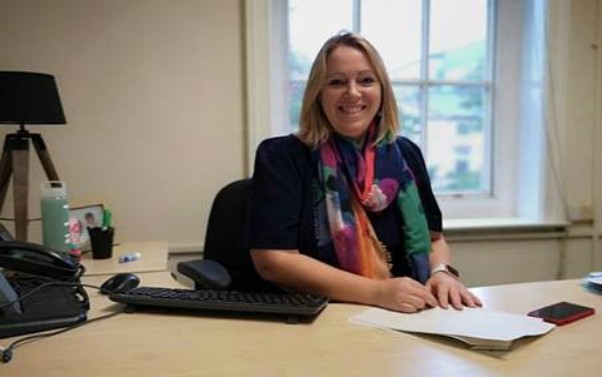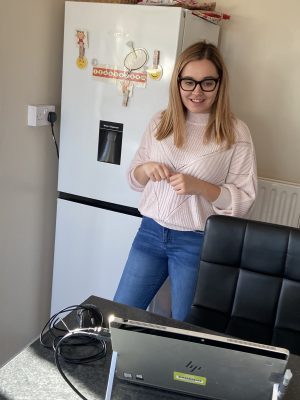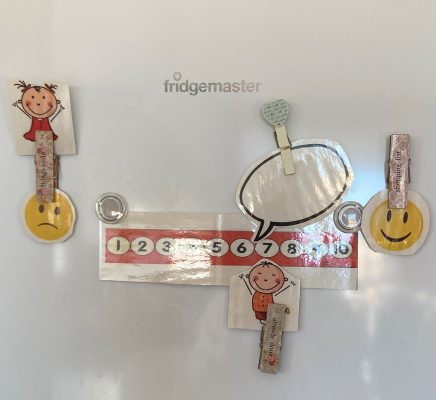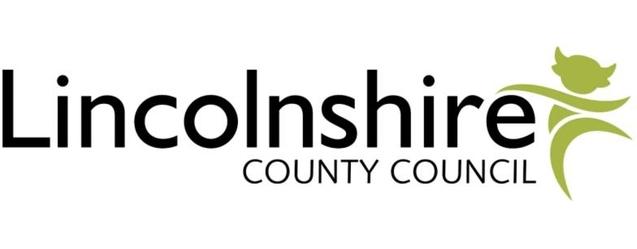Fifteen days into starting her new role as Lincolnshire’s executive director of children’s services and national lockdown prevented Heather Sandy from doing what she’s passionate about – engaging with families, being consultative and connecting with the experts in social care – frontline staff.
“I had planned to spend time with the different teams, partners, stakeholders and had arranged to meet with our young people’s groups, those in residential provision and living with foster carers,” she says.
“My normal leadership style is consultative so not being able to do that has been challenging, particularly with the pace and complexity of the decisions we have had to deal with during the pandemic.”

Heather Sandy, DCS at Lincolnshire County Council
Maintaining leadership
Undeterred by the new challenge of engaging with staff and families while still observing social distancing rules, Heather and her senior leadership team set to work developing alternative strategies.
One of the first was ensuring that staff knew who Heather was and what she could bring to supporting Lincolnshire’s ‘outstanding’ Ofsted credentials, and its commitment to helping children in the county to thrive.
In the same way that Heather has felt supported by frontline staff and senior leaders, she has been keen to give back. Heather’s experience is in education and she has robust networks with schools and a unique understanding of the role that schools play in promoting children’s well-being. She has also worked at Lincolnshire County Council for the past five years as an assistant director for children’s services.
Sending regular emails to team managers that would pass them on to staff helped Heather to connect with social workers. These messages were designed to keep them in the loop about the new decisions the senior leadership team were making. “I try to make the updates light-hearted and weave my personality into them so that staff can get to know me through these interactions. I’ve had some lovely feedback. And as a result of me sharing a bit more, people started to email back pictures of what they were doing, and what their team had done.”
For Aimee, who started her social work career in Lincolnshire as a student three years ago and is now based in the Family Assessment and Support Team in Louth, Heather’s messages were critical in allaying any concerns she had about carrying out her role during the height of the pandemic.
“I feel that across the county, the communication – knowing what was happening and being updated, and that filtering down from Heather through our team managers was really good,” she says. “It helped us to broaden our knowledge about the support that was going out to our families.”

Aimee uses fridge magnets a scaling technique with her children
Connecting with schools
Having strong networks with schools, building on the strengths of partner agencies and keeping the lines of communication open have also helped both support social workers and children and their families.
“Most children in Lincolnshire will never need support from children’s social care,” she says. “This is because professionals in Lincolnshire that partner with social workers such as health visiting, education services, health and the police, have been armed with the skills to identify areas that could become challenges and provide early support before they escalate.”
Heather is passionate about multi-agency working and her experience in education is really key in her drive to ensure children receive the best support. She has achieved that by ensuring communication remains frequent.
“Our partners have been amazing – schools, for example, have really stepped up and become community resilience resources. They have contacted families regularly and provided onsite provision for our vulnerable children. We were really engaging with them really early on.”
Virtual communication
Every year, the senior leadership team holds a number of staff briefings across the county which all children’s services staff are encouraged to attend. These briefings allow Heather and the leadership team to disseminate messages about service developments, share thinking, celebrate team achievements across all strands of the service, and most importantly, gives the opportunity to hear and discuss any staff concerns.
“From the leadership view, it would have been easy to say we could not continue with the staff briefings, but it was more important than ever, and I was really determined that we needed to maintain this engagement with staff,” Heather says.
This is where using virtual technology has provided a golden opportunity to connect with dispersed teams and those working remotely, and for Heather to maintain her visible presence and share information and practice across the service.
It’s a safe space to work, develop and learn, you don’t feel overwhelmed when you first start.
Typically, staff briefings have no more 100 people in a room and it isn’t always easy for people to feel comfortable asking questions and sharing their views, Heather says. But in two weeks, she was able to organise six Microsoft Teams virtual meetings with 100 or so staff, boosting the attendance level.
The meetings were structured so that after Heather gave her overview, staff would breakout into separate virtual rooms with no more than 12 members and led by an assistant director.
Heather says: “The feedback was overwhelmingly positive because people felt like they could get involved and participate. We had comments from staff like: ‘I felt more confident to talk, I don’t feel isolated, and it was good to hear what we are innovating in and what we are worried about’”.
One social worker who attended commented afterwards: “This was a chance to have a much more in-depth conversation that could be fed back to the main group. In the breakout room, I got to know the senior leaders in a way that I would not have if I had been one of a 100 in a face to face meeting.”

Fridge magnets used to deliver scaling with children
These virtual meetings also gave Aimee a chance to talk to people in teams she would not necessarily speak to on a day-to-day basis and to share good practice ideas.
One idea Aimee developed was featured in April’s management newsletter (written by Heather).
“I created magnets with the numbers zero to 10 on them for children to scale how they were feeling and this allowed me to pick a line of questioning for that particular child during our virtual visits.”
Continuous improvement
This approach has helped the service to gather a much richer knowledge of other services, including adults services and other departments within the council.
While Lincolnshire has been fortunate to have had low Covid-19 infection rates, national guidance has been implemented and followed from the start of the pandemic, leading to different ways of working.
Heather acknowledges that it will be many months before restrictions are lifted completely, and also welcomes the opportunity to continue to use new technology alongside more traditional ways of working. The challenge now is ensuring that this interconnectivity is maintained and information continues to be shared whilst continuing to innovate.
But Heather is not one to rest on her laurels and is determined not to lose any momentum. “We are on a constant improvement journey of wanting to innovate, learn and improve the service all the time. And that is our goal for the next 12 months – to be flexible to the potential changes that Covid-19 might bring and communicate these changes so that social workers can respond and manage their workload.”
For Aimee, this resonates with her and working in Lincolnshire has been a good place to work with support from senior managers, team managers and at a supervisory level. “It’s a safe space to work, develop and learn, you don’t feel overwhelmed when you first start. They really help you to gain knowledge and skills when you are first training such as through shadowing experiences as you take on new areas of work.”




 Facebook
Facebook X
X LinkedIn
LinkedIn Instagram
Instagram